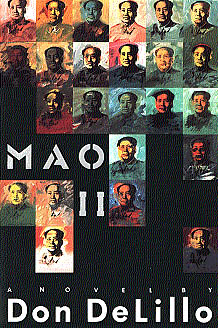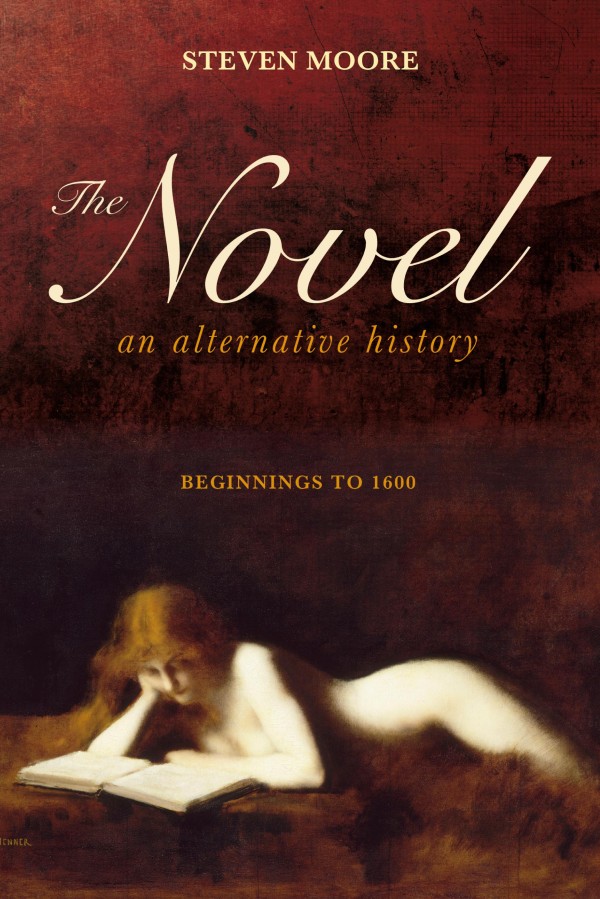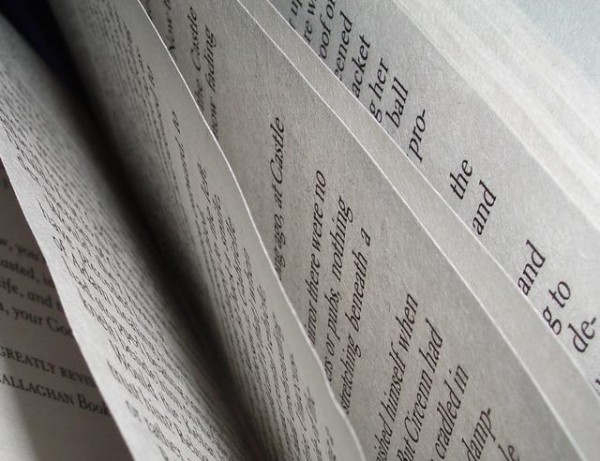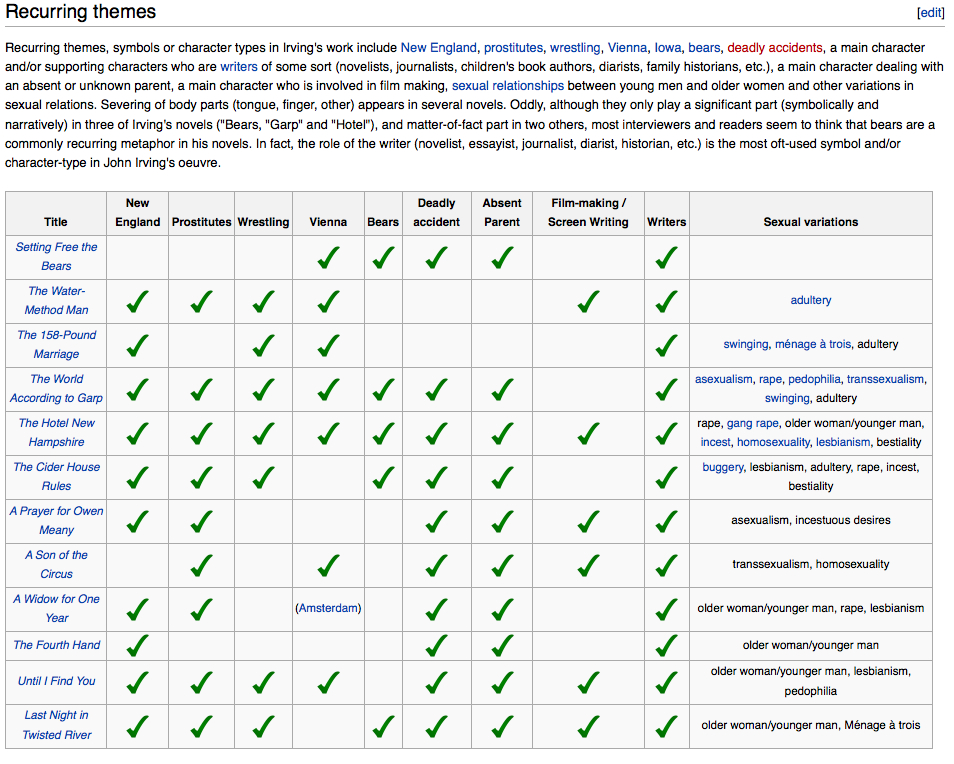Novel Writing, Cooking, Walking, Running

If you are a fiction writer, you will inevitably be asked when you plan to release a novel. If you don’t have an answer to that question, or if the answer to that question is, “I have no idea,” or “never,” other writers will look at you strangely. There is an expectation, for fiction writers, that your primary ambition is to produce novel-length work despite a professional education system (the MFA system) that, for better or worse, focuses primarily on the craft of the short story. The short story, while fairly popular in literary magazines, often seems beleaguered within the greater context of the publishing industry. There are lots of notions that the reading public is not interested in the short story and as such, there is less need for a genre for which there is not a significant audience.
Most of the advice about finding an agent implies that if you don’t have a complete novel draft or one well underway, you shouldn’t even bother with seeking representation because short story collections don’t sell. This mantra is repeated over and over although there is ample evidence that it is, indeed, possible to publish a short story collection. Certainly, publishing a story collection is more challenging, particularly with bigger presses, than publishing a novel, but I read collections regularly and don’t foresee that changing anytime soon. I cannot be alone in enjoying short story collections and finding them abundant. Nothing is ever as dire as the rhetoric implies until, of course, you have written nothing but several short story collections and they are sitting, quietly, on your hard drive, gathering virtual dust.
Irresponsible Book Reviews
[The following book reviews are of books which have not been read, their commentary based solely off of the cover art, cultural projection (i.e. other book reviews, hearsay, author shtick, just “that feeling”), and the book’s title.]
Mao II

With the success of Mao (now known as “Mao I”), DeLillo just had to milk Mao II, which like most sequels (e.g. Karate Kid II, The Hangover II) is basically the exact same story taking place in Asia — which brings us to DeLillo’s story of a schizophrenic 20 lbs. overweight Chinese communist who thinks he’s a Warholian version of himself. The narrator wanders around all day self-obsessed by lyrical thoughts with vague allegorical tendencies; that and he likes wearing girl’s underwear. If this sounds like Murakami, you’re in the wrong country. Asian people may all look the same, but the street signs differ. DeLillo’s captivating portrait of the fragmented individual is coaxed by his succulent, yet restrained prose. There is a difference between non-American and un-American, and while our conservative folk may accuse him of the latter for his unflinching accounts of post-America, his expanded look into the universal human, in their commonality, makes complete humans of us all. Awesome Dim Sum scene in Chapter 5, just saying.
Lotsa Action
HEY, there’s a new jubilat website! Heather Christle tricked it out with all kinds of good, including stuff from the archives, an A/V closet, and a wack index.
Excellent Dark Sky Magazine is doing a give for the excellent Brian Allen Carr’s excellent Short Bus. Yarta goget tha buk. On the now.
At Full Stop, David Backer points to Buzz Mauro’s Everyday Genius story and says that “dressed up with a few offhand observations, whimsical musings and flourishes of free association, ‘Delicious Noodles’ asserts itself as a convincing self-contained whole.” Then Backer points to a story by Matt Bell, from Conjunctions, that I overheard Matt talking about in a bar in DC on Saturday. “You’re supposed to do whatever you want with it,” he said (paraphrase).
Gabe Durham’s Fun Camp book will be out from Mud Luscious in 2013. If you’re an online literature reader, you’ve probably seen a piece from this here or there cuz they been everywhere man.
Also in new books: Publishers Weekly announces Melissa Broder’s Meat Heart, forthcoming from PGP in February. Also in PGP: Chris Toll’s The Disinformation Phase is now available for pre-order.
Also also: congratulations to Stephanie Barber, announced yesterday as a finalist for the Sondheim Prize.
At Tyrant Books, pre-orders are open for Michael Kimball’s renewed novel, Us, too.
And Dzanc just nabbed three by Stephen Graham Jones.
I feel like these roundups are of limited value. Is anyone still with me? There’s more goodness.
Like life. Ariana Reines remembers Paul Violi in a personal post that really blew me away.
If you’re not reading Bill Knott’s cranky blog, you don’t know what the Internet is.
What is the poetic equivalent of this throw from SS (Alexi Casilla, 4/18/11)? In what journal would it appear?
Jeanne Leiby, 1964-2011
 Very sad news today: Jeanne Leiby, editor of The Southern Review, died in a car accident in Iberville Parish, Louisiana. The preliminary news report comes from Avoyelles Today. A tribute from Alex V. Cook, a writer and friend, appears at his blog.
Very sad news today: Jeanne Leiby, editor of The Southern Review, died in a car accident in Iberville Parish, Louisiana. The preliminary news report comes from Avoyelles Today. A tribute from Alex V. Cook, a writer and friend, appears at his blog.
During Leiby’s short tenure at The Southern Review, she distinguished herself for the care and kindness she offered writers. Her short piece “Why I Call,” was her most public statement on the matter.
Condolences and best wishes in this difficult time go to the Leiby family and to Jeanne’s colleagues at The Southern Review and Louisiana State University.
14 mixed feelings on disliking cops
14. Got nervous reading out loud tonight. I know my voice trembled. I became aware of said fact, this trembling voice, and…and, and you know the cycle. Fuck. I felt low. I speak out loud FOR A LIVING. This happens about thrice a year. Any tips?
 That painting will be sold for $25 million plus. Did you look at it or the “Christie’s employee” first? Just wondering. Just the posing of the “Christie’s employee” in this way to present the grotesque twisting of the self portrait should open some questions about art. Suddenly I sound like Jimmy Chen, but with much less eloquence.
That painting will be sold for $25 million plus. Did you look at it or the “Christie’s employee” first? Just wondering. Just the posing of the “Christie’s employee” in this way to present the grotesque twisting of the self portrait should open some questions about art. Suddenly I sound like Jimmy Chen, but with much less eloquence.
14. The thing I see now is the poem written by two. Braided Creek is a book of poetry written by two. It is damn good:
Each time I go outside the worldis different. This has happenedall my life.*The sparrow is not busy,but hungry.
Power Quote: Steven Moore

Do you want to know a secret? Literature is not for everyone. People grant that about other arts — serial music isn’t for everyone, nor is Balinese shadow dancing — but when it comes to fiction, there’s a democratic assumption that anyone with a basic education should be able to read and enjoy any novel…Why this bleeding-heart concern for “the mass of readers,” “the common reader?” (page 24)
The LA Review of Books is now live and updating online. THE DEATH OF THE BOOK: “It is possible to regard much of Western avant garde poetry and prose as an extended argument with the bound pages from which literature would prefer to break free.” BUSTER KEATON AND THE WORLD OF OBJECTS: “Keaton takes the bat and systematically smashes every pane in every bookcase, puts the bat aside, sits down, says nothing.”
THERE IS NO YEAR by Blake Butler
There is no way I am not talking about this here. I don’t know how to start, actually. I feel like if I had the book in front of me I’d have some context, maybe. I don’t know. I’m going to take the “book & feelings” approach. It’s been 19 days since I finished the book, but whatever:
First, the shape of the book, its size, the paper, the texture; from a material design perspective, this book is ideal. I’m not kidding. This is probably ultimately my favorite size of a book for fiction. There is something ridiculously pleasant about it. This is purely subjective of course. If I ever write a novel this is the size I want it to be. I think its width to height ratio is similar to that of a half-sheet of Legal paper, which is a good ratio. Not square, but not as rectangular (well it is of course literally rectangular but you get the idea) as a normal paperback. It is a good ratio. The book has French flaps too, or whatever they’re actually called. It’s nice.
But a book can look nice and be shitty, we all know this. This book is not shitty.
April 19th, 2011 / 1:38 pm
Some Thoughts on Self-Publishing (or, How to Start Self-Publishing)

Today I received an email asking me for publishing advice: “I just finished a book, and thought you might have some tips for publishing options. I want full color and nice fancy paper.” A few weeks ago, I had another inquiry: “I love that you have a printing business! I have something that needs to be printed… do you print these things, or should I just go to Kinko’s?” These questions, along with others garnered at the recent Chicago Zine Fest, have made me realize how much I’ve learned about publishing, and how skewed the perceptions of publishing can be.



